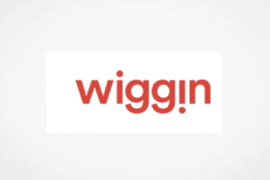Lexology
August 1, 2024
Around the time of the Government’s review of the Gambling Act 2005, two voluntary commitments were made by the football community – in all likelihood, to stave off intervention. These were the:
- removal of gambling brands from the front of Premier League shirts from 2026/27 Season; and
- adoption of a voluntary code for responsible gambling (Voluntary Code).
Whilst the core principles of the Voluntary Code apply ‘across sport’, a general Football Code of Conduct for Gambling Related Agreements has been drafted by the Premier League, The English Football League, the Women’s Super League and The FA as part of football’s commitment to shape a gambling code of conduct for the sport. This appeared on the various competition websites on Wednesday 24 July (accessible from the Premier League’s website here) and will apply from the start of the 2024/25 Season.
The Voluntary Code makes clear that:
- this is a top up to existing rules and requirements already found within the Gambling Act and the advertising codes; and
- that the competitions and clubs are responsible for ensuring that the gambling operators who are party to the gambling related agreements are aware of the Principles and the examples contained within the Voluntary Code.
Core ‘Principles’ and application to football
Protection
To protect Children and other vulnerable people, Gambling Related Agreements must be specifically designed to limit their reach and promotion to those under the age of 18 (Children) and those at risk of gambling related harm.
Comment on football-specific application: whilst the examples given in respect of football are now generally observed and understood, for example no gambling logos on youth pages of a website or on kit used by children, it will be important for the competitions and clubs to consider the way in which “the design of gambling sponsorships…limits its reach and promotion to children and those at risk of gambling-related harm”. An impact assessment of the rights being granted, might be a useful place to start for the clubs, in particular.
Social responsibility
Gambling Related Agreements must be promoted and delivered in a socially responsible way. This includes ensuring that education and awareness messages are provided as part of all marketing activities.
Comment on football-specific application: the requirement for operators to ensure that a portion of gambling advertising promotes responsible gambling messaging is already baked into the IGRG Code. However, ensuring that a “reasonable and proportionate amount of sponsorship inventory” does the same is going to be something new. Of course this requirement is not prescriptive (it doesn’t specify a percentage like the advertising rules do) and whether we are likely to see clubs stipulate that valuable LED minutage must be devoted to meaningful responsible gambling messaging will remain to be seen. Similarly, whilst calls to action are not typical in ‘organic’ social media content, links from logos or tags are, and driving traffic is part and parcel of digital marketing strategies.
Reinvestment
The commercial income raised from Gambling Related Agreements must be reinvested back into infrastructure and programmes that serve football fans and communities. This includes investment to improve infrastructure such as stadia and training facilities, providing community and grassroots participation opportunities for local communities and staging strong competitions.
Comment on football-specific application: it will be interesting to see how this data is recorded and reported and could well divide opinion.
Integrity
Gambling Related Agreements must not compromise the integrity of football competitions nor harm the welfare of those participants who take part in them.
Comment on football-specific application: the Voluntary Code specifies that certain provisions should be reflected within Gambling Related Agreements where the operator is licensed by the Gambling Commission. This will mean that clubs will need to take a look at all current agreements to ensure compliance with the Voluntary Code and make amendments where necessary.
The Voluntary Code also includes sections on its implementation (disclosure and reporting requirements) and a proposed complaints process which is subject to further discussions with the Independent Football Ombudsman.
In summary, there is nothing particularly ground-breaking within the Voluntary Code. For me, these are the key takeaways:
- For operators using white label solutions, it mentions that these solutions require further scrutiny and a reminder that those not licensed by the Gambling Commission must still adhere to obligations around advertising and unlawful gambling. Whilst this is a reiteration of the current position, it’s an important reminder.
- An audit of all gambling sponsorship agreements will be required to ensure that the key provisions are reflected within them. In practice, agreements are unlikely to require emergency amendment, as there is likely to be an obligation to comply with the Voluntary Code via an agreement’s definition of “Rules” or “Football Laws”, but consideration of templates and new agreements is recommended.
- Undertaking a risk assessment of the sponsorship rights and ensuring compliance with the Voluntary Code is also recommended. This will become more important as clubs are forced to move away from kit sponsorship revenue and look for other ways in which gambling operators can be visible through association with clubs. Clubs should consider what their internal policy might look like for an appropriate amount of responsible gambling messaging.





